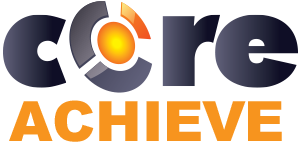Building a Legacy of Training Excellence: Strategies for Long-term Success
November, 14 2023
Other posts:
Enhancing Team Dynamics for Effective Group Decision-Making with LMS Integration
Organizations increasingly rely on collaborative efforts to solve complex problems, innovate, and adapt to change, but how do we ensure that collaboration is happening.
Maximizing Small Business Potential with Training Technology
Training technologies can push small businesses ahead of their competitors, but what are the factors that go into choosing the right technology?
Unlocking Employee Potential: The Transformative Benefits of an Interactive Learning Management System (LMS)
Interactive training allows for unlocking employee potential, but how is it done?
Building a Robust Sales Pipeline with Training
Every organization wants a streamlined sales pipeline, but building one requires a series of interlocking activities with one of the most important being training.
Strategies for Adapting In-Person Training to Online Platforms
Online training is one of the most flexible ways of delivering training across organizations, but how do you even begin to adapt in-person training into online?
Training is one of the most important organizational activities and, like many other key activities, building a legacy will stick with the organization much longer than most employees.
Training professionals, the goal extends beyond immediate success; it's about fostering a culture of continuous learning that endures. Organizations should develop strategies for building a legacy of training excellence and ensuring long-term success in the field of training and development.
1. Embrace Lifelong Learning
As training professionals, it's crucial to continually enhance your organization’s skills. Lifelong learning means staying updated with the latest industry trends, technologies, and training methods. Pursue certifications and professional development opportunities to maintain your organization’s expertise.
2. Cultivate a Culture of Learning
However, the whole organization needs to constantly strive to learn. Promote a growth mindset that encourages employees to seek out opportunities for growth and development. Use a Learning Management System (LMS) to create a library of resources, courses that cater to various skill levels, and reduce barriers to training.
3. Personalize Learning Journeys
Every user is unique, and their training should reflect that. Utilize the capabilities of your LMS to personalize learning paths, ensuring that individuals receive training that aligns with their specific needs and goals. This not only improves engagement but also demonstrates a commitment to their professional growth.
4. Foster Mentorship and Knowledge Sharing
Building a legacy of training excellence often involves the passing of knowledge. Implement mentorship programs within your organization. Seasoned employees can share their knowledge, workflows, or tips with newcomers, helping them navigate the complex world of growing into a role.
5. Continuously Assess and Adapt
The training field is constantly evolving. What worked yesterday might not work tomorrow. Regularly assess your training programs, content, and methodologies. Use the data analytics and reporting features in your LMS to gather insights into what's working and where improvements are needed.
6. Document Best Practices
As you evolve, don't forget to document the best practices you've developed along the way. Use your LMS to create a repository of training materials and resources that can serve as a reference for your organization. This not only aids in consistency but also ensures that future training professionals can learn from your successes.
7. Collaborate and Network
Collaboration is a cornerstone of long-term success. Engage with other training professionals, attend conferences, and be an active member of training-related associations. These connections can provide new ideas, solutions, and inspiration to carry your legacy forward.
8. Focus on Results and Impact
A legacy of training excellence isn't just about delivering courses; it's about achieving tangible results. Set clear goals and objectives for your training programs and track your users' progress. Utilize the assessment and reporting tools within your LMS to measure the impact of your training on the organization.
9. Emphasize the Human Element
Technology is a powerful tool, but the human element should never be overlooked. Make a concerted effort to connect with your users on a personal level. Engage in discussions, provide feedback, and make yourself approachable for questions and concerns.
10. Be Adaptable
The legacy of training excellence doesn't rely on rigid plans but on adaptability. Be open to new ideas and willing to pivot when necessary. Utilize the flexibility of your LMS to make changes and improvements based on feedback and shifting needs.
It may be too grandiose to call it a legacy of training, but if it’s done properly, an organization can use these techniques for decades. It's about creating a culture of learning, sharing knowledge, and achieving lasting results. By embracing lifelong learning, personalizing training, and fostering mentorship, you can build a legacy that benefits your organization and the training field for years to come. Your Learning Management System is your partner in this endeavor, helping you achieve long-term success in training and development.
Get started with CoreAchieve today for free.
Photo by Brett Jordan on Unsplash

Leave comment: